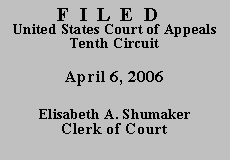

| WILLIAM D. McDONALD,
Plaintiff-Appellant, v. JOHN W. COYLE, III, Defendant-Appellee. |
|
On appeal, McDonald asserts that Coyle (1) committed legal malpractice in his representation of Caren McDonald, resulting in her serving a prison term even though she is innocent of the charges to which she pled guilty, (2) conspired with state actors to obtain the guilty plea, thus giving rise to a cause of action under 42 U.S.C. § 1983, (3) committed fraud and obstructed justice in arranging for Caren McDonald to enter a guilty plea, and (4) Coyle's actions caused him to suffer loss of consortium and emotional distress. He also complains that the district judge was biased against him and that the judgment constituted a fraud on the court.
We first address McDonald's challenge to the district court's holding that he does not have standing to bring legal malpractice claims on behalf of his wife. We review de novo a district court's ruling that a litigant lacks standing. Brereton v. Bountiful City Corp., 434 F.3d 1213, 1216 (10th Cir. 2006). "The doctrine of standing asks whether a litigant is entitled to have a federal court resolve his grievance." Kowalski v. Tesmer, 543 U.S. 125, 128 (2004). Generally, a litigant "must assert his own legal rights and interests, and cannot rest his claim to relief on the legal rights or interests of third parties." Id. at 129 (quotation omitted). In limited circumstances, a next friend may be granted standing to assert the rights of another. Id. at 129-30. To invoke this limited exception, however, the party seeking next-friend status bears the burden of showing that he has a close relationship with the person possessing the right at issue, and "there is a 'hindrance' to the possessor's ability to protect [her] own interests." Id. at 130; accord Whitmore v. Arkansas, 495 U.S. 149, 164-65 (1990). Third-party standing similarly requires "a hindrance or inability of the third party to pursue his or her own claims." Terrell v. INS, 157 F.3d 806, 809 (10th Cir. 1998).
McDonald has not identified any hindrance to his wife's ability to bring legal malpractice claims against Coyle. Accordingly, we hold that he does not have standing to bring those claims on her behalf. This holding applies with equal force to McDonald's claims that Coyle obtained the guilty plea by fraud and that he conspired with state actors to deprive his wife of her constitutional rights. Moreover, McDonald presents no facts to support his conspiracy allegations. Thus, they cannot survive dismissal because "the pleadings [in a conspiracy claim] must specifically present facts tending to show agreement and concerted action." Scott v. Hern, 216 F.3d 897, 907 (10th Cir. 2000).
McDonald has not established individual, next friend, or third-party standing. Accordingly, the district court properly dismissed the case for lack of standing.
McDonald is not entitled to relief on his claims that Coyle should be charged and found guilty of violating federal criminal statutes pertaining to fraud, conspiracy, and obstruction of justice. "[A] private citizen lacks a judicially cognizable interest in the prosecution or nonprosecution of another." Diamond v. Charles, 476 U.S. 54, 64 (1986) (quotation omitted); accord Doyle v. Okla. Bar Ass'n, 998 F.2d 1559, 1566-67 (10th Cir. 1993).
We do not consider McDonald's claims for emotional distress and loss of consortium resulting from his wife's imprisonment because he did not present these claims to the district court. See Tele-Communications, Inc. v. Comm'r, 104 F.3d 1229, 1232-33 (10th Cir. 1997) (issues not raised before the district court are waived).
McDonald also maintains that the district judge was biased against him. Because he did not file a motion for recusal, we "employ[] a plain error standard to decide whether the impartiality of the district court was so suspect as to require a new trial." United States v. Nickl, 427 F.3d 1286, 1297-98 (10th Cir. 2005) (footnote omitted). McDonald's argument that the district judge was biased is apparently based solely on unfavorable rulings in the case. Adverse rulings alone cannot provide grounds for disqualification. Mitchell v. Maynard, 80 F.3d 1433, 1449 (10th Cir. 1996). Accordingly, we find no error. Similarly, the district court's adverse rulings do not support McDonald's claim that the judgment against him constituted a fraud on the court. See United States v. Buck, 281 F.3d 1336, 1342 (10th Cir. 2002) (stating fraud on the court "requires a showing that one has acted with an intent to deceive or defraud the court") (quotation omitted). The judgment of the district court is AFFIRMED.
Entered for the Court
Circuit Judge
*. After examining the briefs and appellate record, this panel has determined unanimously that oral argument would not materially assist the determination of this appeal. See Fed. R. App. P. 34(a)(2); 10th Cir. R. 34.1(G). The case is therefore ordered submitted without oral argument. This order and judgment is not binding precedent, except under the doctrines of law of the case, res judicata, and collateral estoppel. The court generally disfavors the citation of orders and judgments; nevertheless, an order and judgment may be cited under the terms and conditions of 10th Cir. R. 36.3.
1. McDonald filed an earlier, similar appeal in which he attempted to bring a lawsuit on his wife's behalf arising from the same facts, but naming different defendants. McDonald v. Van Houtte, No. 05-6132, 2005 WL 3307432 (10th Cir. Dec. 7, 2005). There, as here, McDonald lacked standing. Id. at *1.